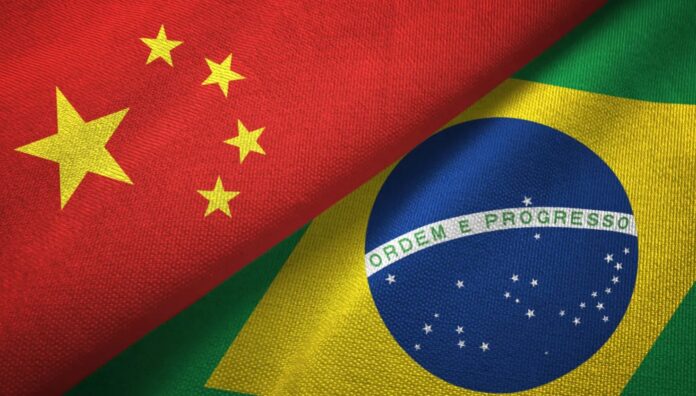
Brazil and China are strengthening their partnership to create new opportunities for development. A virtual meeting on December 21, 2024, brought together officials from both nations to discuss priority projects. This meeting followed agreements made during Chinese President Xi Jinping’s visit to Brazil in November.
MOMENTO HISTÓRICO 🌟✨✨
Presidente Lula ACABA de RECEBER no Palácio da Alvorada o presidente da China Xi Jinping.
– Os dois IRÃO ASSINAR a MAIOR aliança global da HISTÓRIA CONTRA a FOME e pelo
DESENVOLVIMENTO entre os 2 países!DA-LHE, LULA! 🌎🇧🇷🇨🇳🚀 pic.twitter.com/8a5vg4nFMu
— Pedro Rousseff (@pedrorousseff) November 20, 2024
Key Points from the Meeting
The meeting involved Rui Costa, Brazil’s Minister of the Civil House, and Zheng Shanjie, China’s Minister of the National Development and Reform Commission. They focused on implementing projects under the Cooperation Plan. Dilma Rousseff, president of the New Development Bank (NDB), also joined, along with other key officials.
Two main areas were discussed: financial cooperation and projects in infrastructure, production chains, energy transformation, and technology. Brazil shared its national strategies, including the New PAC and the Ecological Transformation Plan, as foundations for collaboration.
The Brazilian and Chinese presidents sign 15 trade and partnership agreements in Beijing. The agreements include cooperation in the field of space, research and innovation, digital economy, combating hunger, exchange of communications, and trade facilitation. pic.twitter.com/9o2342ZpoZ
— S p r i n t e r (@SprinterFamily) April 15, 2023
Financial Support from the New Development Bank
The New Development Bank will play a central role in financing projects. Dilma Rousseff highlighted the bank’s focus on supporting sustainable development. This includes investments in renewable energy and green infrastructure to benefit both nations.
Applauses!👏
🇨🇳Chinese President Xi presented Dilma Rousseff, president of the New Development Bank & former🇧🇷 #Brazilian President with🎖️a Friendship Medal, the highest honor China confers on foreign nationals, for her contribution to China-#Brazil friendship and… pic.twitter.com/5GHHZN9OlM— Shen Shiwei 沈诗伟 (@shen_shiwei) September 29, 2024
Priority Projects for Brazil
Brazil is identifying key projects to share with China by February 2025. These include plans to boost industrial capacity and address climate challenges. Rui Costa emphasized the importance of focusing on well-structured initiatives.
China reaffirmed its commitment to deepening ties with Brazil. Zheng Shanjie expressed confidence in the success of this collaboration, highlighting China’s focus on sustainable growth and technological advancement.
President Xi Jinping and President Lula da Silva agreed to:
—continually deepen strategic mutual trust, firmly support each other, and safeguard the common interests of Global South countries;
—synergize the development strategies of the two countries, and deepen cooperation in… pic.twitter.com/LtAUEdVPco
— Hua Chunying 华春莹 (@SpokespersonCHN) November 20, 2024
The Agricultural Trade Agreements brought up in November are proof that these two countries are committed to strengthening their ties even more. China is now present in many fields, and one of the crucial points is related to communication services. The Elon Musk’s Starlink service is getting a serious rival, Chinese company Spacesail, which will start providing its services in Brazil from 2026.
While some people think that the reason for that is the recent feud with Elon Musk, it’s actually a result of the BRICS organization, where Brazil and China are some of the founders.
Private Sector Investments
Private companies are also engaging in this partnership. For example, Brazilian motor maker WEG recently announced plans to invest $62 million in expanding its operations in China. This shows how businesses are aligning with the goals of the governments.
Brazil and China are working together to achieve shared goals. With plans in place and projects underway, this partnership promises to create significant opportunities for both nations in 2025 and beyond.
















